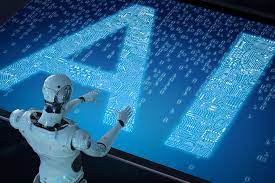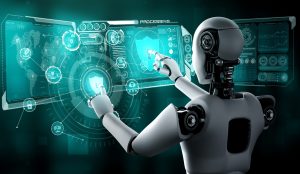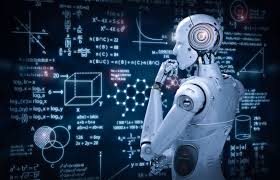
Artificial Intelligence (AI) continues to evolve at a breakneck pace, transforming industries and redefining how businesses operate. As we look ahead to 2025, several groundbreaking AI trends are poised to dominate the landscape. Among these, autonomous agents and multimodal AI stand out as game-changers, driving innovation across sectors. In this blog post, we’ll explore the top 5 AI trends for 2025 and how they are reshaping industries worldwide.
1. Autonomous Agents: The Rise of Self-Sufficient AI Systems
Autonomous agents are AI systems capable of performing tasks independently, without human intervention. These agents are designed to learn, adapt, and make decisions in real-time, making them invaluable in industries like logistics, healthcare, and customer service.
By 2025, we can expect autonomous agents to revolutionize supply chain management, enabling self-driving delivery vehicles and smart warehouses. In healthcare, they will assist in diagnostics and personalized treatment plans, while in customer service, they will handle complex queries with human-like precision.

Why It Matters: Autonomous agents reduce operational costs, improve efficiency, and enhance decision-making, making them a cornerstone of AI-driven transformation.
2. Multimodal AI: Bridging the Gap Between Data Types
Multimodal AI refers to systems that can process and interpret multiple types of data, such as text, images, audio, and video, simultaneously. This capability allows for more comprehensive and context-aware solutions, paving the way for advanced applications in fields like entertainment, education, and retail.
For instance, in 2025, multimodal AI could power immersive virtual shopping experiences, where customers interact with products using voice, gestures, and visuals. In education, it could create personalized learning platforms that adapt to students’ unique needs by analyzing their verbal and written responses.
Why It Matters: Multimodal AI breaks down silos between data types, enabling richer, more intuitive interactions between humans and machines.
3. AI-Driven Personalization: Tailoring Experiences at Scale
Personalization has long been a buzzword, but AI is taking it to new heights. By 2025, AI-powered personalization will be more sophisticated, leveraging data from multiple sources to deliver hyper-targeted experiences.
In marketing, AI will analyze consumer behavior to create highly customized campaigns. In healthcare, it will design personalized wellness plans based on genetic, lifestyle, and environmental data. Even in entertainment, AI will curate content tailored to individual preferences, ensuring a seamless user experience.
Why It Matters: Personalized experiences drive customer satisfaction and loyalty, making AI-driven personalization a key competitive advantage.
4. AI in Sustainability: Tackling Global Challenges
As the world grapples with climate change and resource scarcity, AI is emerging as a powerful tool for sustainability. By 2025, AI will play a pivotal role in optimizing energy consumption, reducing waste, and promoting eco-friendly practices.
For example, AI-powered smart grids will balance energy supply and demand, while predictive analytics will help businesses minimize their carbon footprint. In agriculture, AI-driven precision farming will optimize water and fertilizer usage, ensuring sustainable food production.
Why It Matters: AI’s ability to analyze vast amounts of data makes it an indispensable al

ly in the fight against climate change and resource depletion.
5. Ethical AI: Building Trust and Accountability
As AI becomes more pervasive, concerns about ethics, bias, and transparency are growing. By 2025, the focus on ethical AI will intensify, with businesses and governments prioritizing fairness, accountability, and explainability in AI systems.
Expect to see stricter regulations and frameworks governing AI development and deployment. Companies will invest in tools to detect and mitigate bias, while also ensuring that AI decisions are transparent and understandable to users.
Why It Matters: Ethical AI builds trust and ensures that AI technologies benefit society as a whole, rather than perpetuating inequalities or causing harm.
Conclusion: Embracing the AI Revolution
The AI trends of 2025—autonomous agents, multimodal AI, personalization, sustainability, and ethical AI—are set to reshape industries in profound ways. Businesses that embrace these advancements will gain a significant edge, driving innovation and delivering value to customers.
As we move closer to 2025, staying informed and adaptable will be key to thriving in an AI-driven world. Whether you’re a business leader, developer, or consumer, now is the time to explore how these trends can transform your industry and unlock new opportunities
